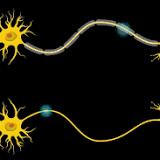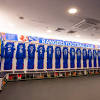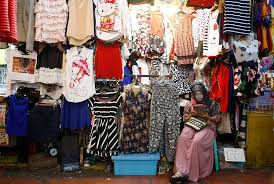Copa Libertadores: Who can end Brazilian dominance?


Just over 70 years ago an Argentine arrived in Spain, via Colombia, and changed the course of European football.
His name was Alfredo di Stefano, and his majestic presence on the field for Real Madrid helped transform the European Cup from a precarious idea into a glamorous reality.
Now that Europe had its annual club champion, Di Stefano's native South America had to do likewise. The Copa Libertadores was born in 1960 - and the group phase of its latest edition kicks off on Tuesday.
Penarol of Uruguay won the inaugural version. For the first three decades they and their local rivals Nacional were strong.
Then came two triumphs from the Pele-inspired Santos of Brazil. But Santos soon pulled out of the competition. Travel around the continent was - and remains - expensive and complicated and, in the days before the influx of TV money, they concluded that the competition made little financial sense.
Their absence and general Brazilian indifference opened the path for the Libertadores to be dominated by Argentina.
But times have changed.
Lifting the trophy is now a priority for Brazilian clubs and over the past few years massive financial gaps have opened up between them and the rest of the continent. The Brazilians are using their revenue to bring back stars from Europe, and also to cherry-pick from the neighbouring nations, widening the gap further.
In the all-time table, clubs from Argentina still lead, with 25 wins. But Brazil is catching up fast. Its 23 wins include the past five years - an unprecedented spell of dominance - and three of those five finals have been all-Brazilian affairs.
Smart money is on another Brazilian triumph
Brazil start with a numerical advantage. Qualifying rounds have whittled a field of 47 down to 32, of whom Bolivia, Colombia, Paraguay, Peru and Venezuela have two sides each, Ecuador and Uruguay three, Chile four, Argentina five and Brazil seven.
Included in that Brazilian cohort are reigning champions Fluminense and the previous two winners, Flamengo and Palmeiras.
Flamengo were champions in 2019 and 2022 and boast a squad of intimidating depth, while coach Tite, who took Brazil to the past two World Cups, is at the helm.
Palmeiras, champions in 2020 and 2021, have Portuguese coach Abel Ferreira, who carries the air of a highly talented young Jose Mourinho.
Throw in Atletico Mineiro, who did the Brazilian double in 2021, Sao Paulo, who made the country fall in love with the Libertadores in the early 90s, plus Gremio and Botafogo, and it is easy to see why the smart money will be on yet another Brazilian triumph, with a good possibility of a final between two of these giants. Who can possibly stop them?
Argentina suffering from generalised mediocrity
The obvious candidates are River Plate of Argentina, with a deep squad of their own, a splendid generation of young talent and an interesting coach in former Manchester City defender Martin Demichelis.
River were the last non-Brazilian team to win the title, in 2018, but since then they have continually fallen to the Brazilians in the knockout stages.
A key question for them, and the other teams, will be how to defend against the level of attacking ability that the teams from their giant neighbour can assemble.
A boost for River is that the final - scheduled for 30 November - will take place in their city of Buenos Aires, and very probably in their stadium, which now has the biggest capacity in South America.
They would seem to stand much more chance of reaching the final than any of the other Argentine sides. River are the only one of the five to play in last year's competition - a strong hint that, while Brazil is developing a breakaway group of elite clubs, Argentina is suffering from generalised mediocrity.
Big names face early test
In recent years Ecuador has emerged as Brazil's surprise strongest challenger. In the past few seasons Barcelona of Guayaquil have twice reached the semi-finals.
But the bigger threat could come from the two Quito sides, with the altitude of the capital city proving uncomfortable for away sides.
LDU, or Liga of Quito, overcame Brazil's Fortaleza to win last year's Copa Sudamericana, the continent's Europa League.
And there is the remarkable Independiente del Valle, a little club who have specialised in the production of youth talent. Chelsea's Moises Caicedo is their leading product, and 16-year-old Kendry Paez will be joining him at Stamford Bridge next year.
The Paraguayans - Libertad and Cerro Porteno - are notorious for punching above their weight, while 1991 champions Colo Colo of Chile have been huge recent underachievers but trust that things will be different this year with the return of 'king' Arturo Vidal, having battled through the qualifying rounds.
The Libertadores, though, has become an unequal fight. The special interest in this week's opening round is that the favourites are all away. With the continent's vast distances and variations in climate and geography, home advantage counts in South America.
So there could be an early stumble for some of the big names. And as the competition proceeds it will be interesting to see who is left standing to spike the big guns of Brazil.


 United Kingdom
United Kingdom Argentina
Argentina  Australia
Australia  Austria
Austria  Brazil
Brazil  Canada
Canada  Germany
Germany  Ireland
Ireland  Italy
Italy  Malaysia
Malaysia  Mexico
Mexico  New Zealand
New Zealand  Poland
Poland  South Africa
South Africa  United States
United States 































